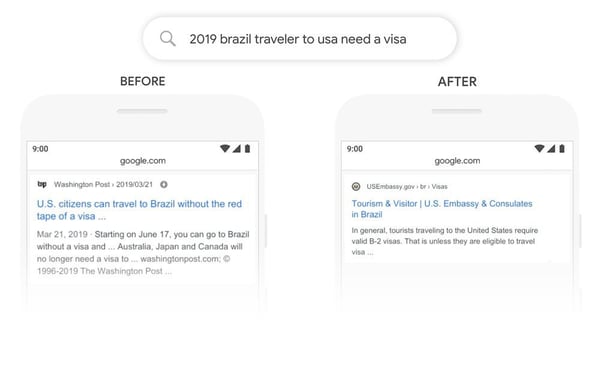Optimise for humans, not search engines. It’s the rule that Google has been continuously pushing since SEO began, and it is becoming more and more relevant with each algorithm update. Traditional SEO tactics such as using keywords where you can, minimising link errors, and cultivating backlinks appear to be falling by the wayside in favour of quality content. This is a good thing for content marketers - if your goal is to become a thought leader in your industry, then you should be striving towards educational, quality content anyway, but it does raise some questions in the SEO world. So what does the most recent update, BERT, mean for SEO? Is it time to admit that SEO as we know it is dead?
In short, no.
Google has always been focused on connecting users with great quality content, and BERT is the latest advance in making this process airtight. BERT stands for Bidirectional Encoder Representations from Transformers (yes, really) and has been developed to help Google understand conversational searches more effectively. A new advance in machine learning, it works to understand search intent, and connect searchers with the answers they want, instead of just focusing on the words typed.
Simply put, if you Googled ‘flights to Amsterdam’, Google may have previously shown results for things to do in Amsterdam, how long the flight will take, etc, based on the main keywords: ‘flights’ and ‘Amsterdam’. With the advances that have been made through updates like BERT, Google would interpret the sentence as a whole, and instead show you details of flights and a link to book. Google has provided further examples:
 Here, you can see that the SERP result after BERT more effectively answers the query. Google doesn’t provide information based on the main keywords, but rather interprets the full phrase. The first result informs the searcher that US citizens can travel to Brazil without a visa, but this doesn’t line up with the search intent. The second result reads the full query, and provides useful information - linking to the visa application site for travellers from Brazil to the US.
Here, you can see that the SERP result after BERT more effectively answers the query. Google doesn’t provide information based on the main keywords, but rather interprets the full phrase. The first result informs the searcher that US citizens can travel to Brazil without a visa, but this doesn’t line up with the search intent. The second result reads the full query, and provides useful information - linking to the visa application site for travellers from Brazil to the US.
How do I optimise my website for BERT?
In terms of SEO, there really isn’t a lot you can do to optimise for BERT. Unlike previous large algorithm updates, the focus isn’t on any technical aspects like backlinks, URL structure or too many keywords, but on the content itself. Your content should be engaging, informative, and above all it should work to answer questions that your searchers may be asking. BERT’s shift towards the conversational search phrase means that now, more than ever, you should be focusing on your buyer personas and the questions that they may ask. Take the time to research what the common pains are in your industry, and start planning your content strategy based on this.
You can also start to think of optimising for the questions themselves, and using questions in your content to signify that you are providing an answer. For example, if you’ve searched for ‘how do I optimise my website for BERT?’, you might have ended up here! Make sure that you use your keywords in an organic way throughout, and that there are no technical SEO issues, but above all, ensure that your content is meticulously planned and written for your target question, or audience.
How will my rankings be affected?
The good news is that BERT shouldn’t affect your search rankings… if you’re already producing great content. The release of the update had very little impact on SEO tracking tools, and there haven’t been significant fluctuations as of yet. However, as BERT settles and Google works on better, more intelligent AI technologies, it’s likely that websites will encounter a drop. Content that is low quality, or content that frames itself as a solution but never actually provides one, will likely drop below informative content. Consider this within your content strategy, throughout the planning, proofing, and optimising process, for the best results from your marketing.
Ultimately, BERT is a good thing, both for your marketing efforts and for Google. It means that searchers are more likely to be paired with the results they’re looking for, which hopefully means that more people landing on your website are actively interested in your content, and are more likely to turn into customers further down the line. You might experience a drop in traffic, but the update should improve conversion and bounce rate if it works correctly, and is sure to revolutionise your content strategy.
Worried about how to create great content? The key to optimising for BERT is to ensure that your content is human, engaging and authentic, and creating this can be more difficult than it seems. Despite your best intentions, it can be easy to fall into content that is boring, generic, or too sales-focused, which doesn’t give any value to the reader. We’ve created a guide that will help you to create exciting and relevant content that is optimised for humans, not just search engines!






.png?width=115&height=183&name=sade%201%20(1).png)